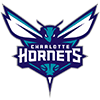"We're talking about Fantasy, but we're not really talking about Fantasy" – Chris Harris, host of the Harris Football Podcast
Whenever tragedy strikes, Harris opens his podcast with that unfortunately familiar refrain. Simply, yet elegantly, he summarizes the psychic disconnect we face all too often. How can we continue spending hours on a trivial hobby while fires ravage Los Angeles? How can we text about start-sit decisions while North Carolina floods? While lives are upended in the real world, how do we carry on debating players so obscure they go unrecognized at a restaurant in their home cities?
We're talking about Fantasy, but we're not really talking about Fantasy.
If the goal is not talking about Fantasy, then why do we talk about Fantasy at all?
Because finding a community and making connections is a part of surviving the human experience. While it may sound Pollyannish to say, community building is central to the popularity of Fantasy sports. There's research to back that up, but we don't need research to underline what most of us have felt through lived experience. A clear recent example from my own life came last summer, when my group of friends experienced significant awkwardness around settling costs after a reunion weekend. Two friends who'd known each other for 20 years didn't speak for months. Sharing Fantasy basketball memes was what finally broke the ice.
The common joke is that no one wants to hear about your Fantasy football team. But how many times have we been at a neighbor's barbeque, or a school fundraiser, or a cousin's wedding, floundering from topic to topic until we find the comfortable groove of a Fantasy conversation?
We talk about Fantasy. But we aren't really talking about Fantasy. We're saying we value 20 years of friendship more than this spat. We're saying that we want to connect, to bond, to enjoy this time together.
It helps that Fantasy sports are disconnected from the traditional left-right American political divide. Part of the appeal of the cocktail-hour Fantasy conversation is the topics we're avoiding. Especially in this era of heightened toxicity and aggression, we're often conspicuously avoiding veering into political territory. Deliberately dodging responses that might bend the discussion off course. Politics loom unspoken over the entire affair, a twisted variant of the Rom-Com's "will-they-or-won't-they". Fantasy, like popular music or TV (and arguably more so), is safe.
Many analysts embrace that separation and avoid political commentary on their personal social media accounts. This was my approach, too, for most of the last 12 years, dating back to when I first started covering Fantasy as a part-time beat writer for RotoWire in the summer of 2013 (this was my choice; I have never had an employer ask me to limit my speech). For most of us, the decision to minimize politics on social media is motivated by a sincere effort to create a space where all Fantasy sports lovers feel welcome, regardless of what else our followers believe. Like the dinner party made virtual, many of our followers are there to escape, to talk about sports, to bond, to avoid unpleasantries.
In our current political environment, however, attempting to escape to a safe topic has no longer felt right for me. Because while the natural disasters mentioned in the opening paragraph are quick and random, the actions of our American government are neither. By the time Harris presses "record", the peak of those crises has past and few of his listeners were ever in harm's way. But I perceive an increasing number of Americans feeling less safe in their lives each day.
I always felt some cognitive dissonance in trying to ignore the news to focus on sports, but the role Fantasy sports played in building and strengthening communities helped me through it. In our current political environment, however, attempting escape to a safe topic is no longer right for me. So I will be putting my Fantasy analysis career aside to try something new and help communities in a different way: I will be running for the United States Senate in my home state of Massachusetts.
I still love Fantasy sports. Working in it may not be right for me right now, but I'm glad for those who are staying – when life gets more stressful, that's when we need our communities the most. Many of us (including myself) still depend on the connections that Fantasy provides.
I'm moving on, but Fantasy sports will still be my escape. And you all will still be my community.
~ ~ ~ ~
If you want to learn more about Alex's vision for a better community, you can find out about his campaign here: AlexRikleen.us






















